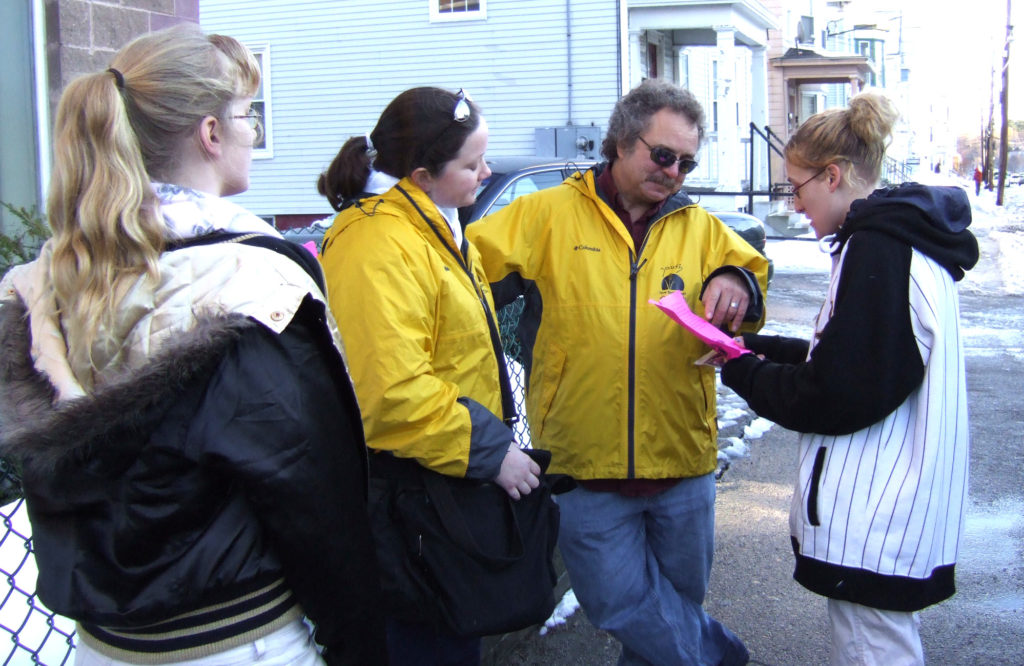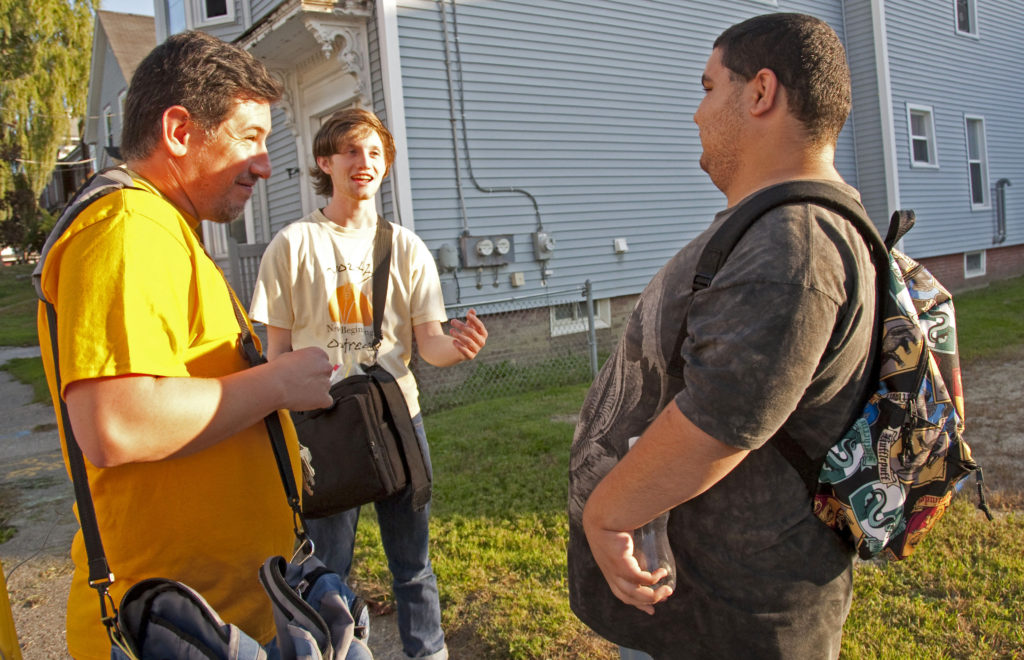Youth are homeless in Maine for variety of reasons
New Beginnings provides outreach and support
By Nathan Tsukroff
LEWISTON – While there is not a specific reason youth in Maine are homeless, a survey in late 2017 indicated that some 40% of homeless youth are LGBTG+, compared to just 15% of their in-school peers.
Although sexual orientation may be a factor in leaving their homes for some of the homeless youth, others may be trying to escape a dangerous or abusive family situation, according to Kris Pitts, Community Services Director for New Beginnings, an agency based in Lewiston that serves adolescents and young adults from across Maine at its program sites in Androscoggin, Kennebec and Franklin counties. The decision to leave a home is often not due to a single factor, she said, but is usually the result of a combination of factors.
New Beginnings began with an emergency shelter in Greene, ME, in 1980, which was moved its current location in Lewiston in 1986. The agency began its street outreach program in 1990, and connected with just over 4,500 youth in 2019, the latest year for which it has statistics.
Some 758 youth were helped at the Lewiston drop-in center in 2019, and 911 youth and families were served by New Beginnings that year.
Being homeless leads to higher levels of interpersonal violence, suicide and trauma for adolescents and young adults, compared to their in-school peers, New Beginnings learned in its 2017 survey. Some 46% of the homeless survey respondents reported three or more adverse childhood experiences while living in their homes, which is twice as much as reported by their in-school peers and more than four times the national average of 10%.
Nearly 1 in 5 homeless youth reported being physically hurt by a boyfriend or girlfriend the previous year, with 30% reporting they were physically forced to have sexual intercourse again their will, compared to 8.4% of high school seniors. Overall, Maine ranks in the lower third of states, with some 4% of males and 10.4% of females reporting forced intercourse at some point in their lives, according to a national survey, also from 2017.

New Beginnings helps youth who don’t have stable family support by providing a safety net of food, clothing, shelter, housing and referrals.
Besides the drop-in center at 134 College Street in Lewiston, adolescents and young adults can be guided to an emergency shelter and to a transitional living program run by the agency. The Lewiston facility provides help with finding housing, emergency food and hygiene supplies, and meals. More than 11,000 meals were served at New Beginnings’ shelter and drop-in center in 2019.
The emergency shelter serves as a safe place for youth to stay temporarily if they need to escape a dangerous situation at home, Pitts said. Other youth may be asked to leave or are locked out of their home by a caregiver. “We obviously want to work for reunification if we can, for young people,” Pitts said. About 80% of youth served by the agency in 2019 reunified with family or acquired safe housing.
New Beginnings has transitional living programs in Lewiston, Augusta and Farmington that provide housing for up to 18 months as youth are taught the skills they need to live on their own. Services include case management, independent living skills instruction, referrals, and follow-up support. More than 8,980 nights of housing were provided by the agency in 2019.

The need for help for homeless youth “is much larger than I think a lot of people would either anticipate, or are comfortable recognizing sometimes,” Pitts said.
More information about New Beginnings and its programs may be found at: newbeginmaine.org




